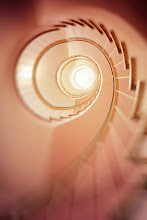Visual artist Lucila Masciorini
Born in Buenos Aires, Argentina, on October 26, 1987, Lucila Masciorini is a Miami-based visual artist that uses photography as her medium. Her interest in photography began when she found her father's old camera in a dusty box, where it had been stored for years. Fortunately, the camera was still functional, and so she began experimenting with it. Shortly after, Lucila decided to attend the Andy Goldstein Creative School, where she studied photography. Although best known for her surrealist compositions -which feature select body parts placed in unconventional settings- she is particularly interested in the use of the camera as a way of immortalizing her own interpretation of moments that are worthy of being seen again. The essence of her work lies not in what people see, but what people don't see conveying a sense of mystery that forces the viewer to engage intellectually. Coral Contemporary Gallery has included her work in numerous collective exhibitions, and currently displays a selection of it at their Midtown Miami location.
Why did you choose to study photography? How did you realize your interest and talent in photography?
I love art. All type of art forms. I’ve always enjoyed exposing myself to it and let it take me wherever that is, because good or bad, it’s always worth it. My father used to take many pictures when he was young. He would travel a lot and photograph friends and family. He was kind of a compulsive documenter of his life. I remember sitting for hours in the living room, lights off, watching his slides played on a projector.
One day, while I was in his office, I found a bag with the camera and lenses. A 35mm Canon from 1971. By this time, digital cameras were becoming popular and everybody was shifting out of film.
So, at first it was more of a challenge to me. Not only the technical aspects of the camera -like manual focusing (that’s probably the hardest one)-, but also finding the film I wanted, or places where to develop it, plus the economic aspects of it too.
But I was soon over that, and really enjoying my time with the camera. I became an opportunist, moving around in search of subjects and scenes worth photographing; interested in going places just for the chance of stealing another moment from this world to add it into my collection. More importantly, I realized I could create my own kind of universe just with a camera. That´s when I knew photography could give me an identity, a defined place in a world I felt inaccessible.
Tell us more about your surrealist compositions. What is your special process?
There isn’t a particular process. Each photo has never been created the same way. I try to keep my eyes open for places that could work as settings for this series. Sometimes I go out scouting, but most of the time I find spots when I’m not actively looking. My friends no longer let me drive, otherwise I’d be pulling over every time I see something. I can get very annoying.
But once the image is in my head, I become obsessed with it, and won’t stop until I get it. I don’t care if it involves getting naked in the middle of the street, making a fool in public, jumping up a fence, dealing with security or getting stung by bugs. Fortunately, I have friends that will bear this with me and pose as my models. And if no one can, I will put the camera on a tripod and pose for it myself. I don’t have a budget for this, so I need to get creative and figure out how to do it with what I have.
When did you discover this 'sense of mystery' that intrigued and engaged people intellectually?
I spend time looking at my photos and trying to find links, patterns, meaning. I think they are a very powerful tool for self-introspection. But in my creative process, the analytical stage is the last one. I like to keep an open mind when I’m out there shooting and follow my instinctive urge to capture something or someone instead of worrying about conforming to certain rules or styles.
How important do you think experimenting is?
I think it’s ALL about experimenting. It’s through experimenting that everything is created. Experimentation requires us to expand our knowledge. Like for example, if I wanted to start developing my own film, I would have to learn how to set up a dark room (among other things). And knowledge broadens our creative options. So, yes, I think experimenting is key to any practice really. It forces us out of our comfort zone to try out new things. Plus, it can never go wrong, because even if it doesn’t work, it will expand one’s understanding of their own capabilities.
Where can our art fans and collectors see more of your artworks?
Most of them are posted on my website, www.lucilamasciorini.com. I’m on Instagram as well, as @lucilamasciorini, where I also keep my followers informed about upcoming exhibitions. Coral Contemporary, a Miami-based art gallery currently has a selection of my work on display at their Midtown Miami location, and Saatchi Art -an online art gallery- has some limited editions listed on their website (www.saatchiart.com). I ask anyone who’s interested to DM me their e-mail where I can always send them my portfolio.














Leave a Comment